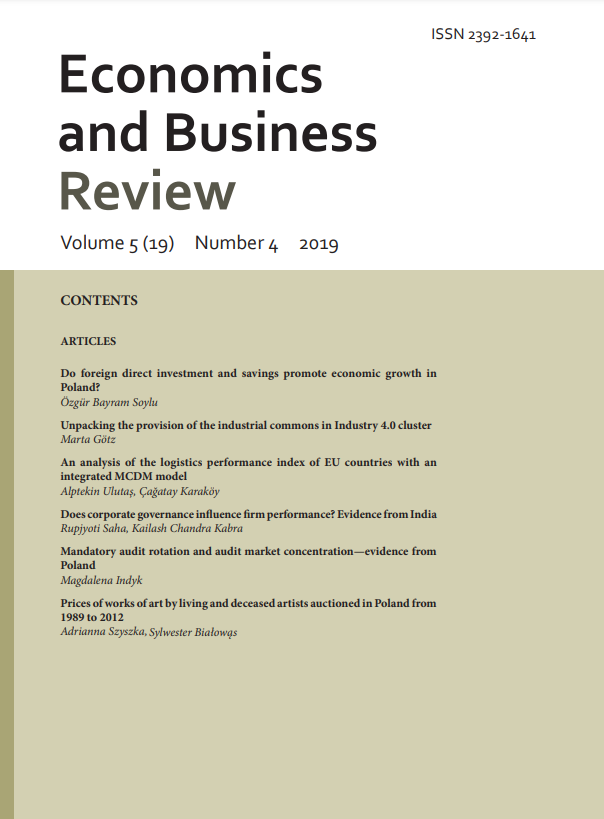MANDATORY AUDIT ROTATION AND AUDIT MARKET CONCENTRATION – EVIDENCE FROM POLAND
MANDATORY AUDIT ROTATION AND AUDIT MARKET CONCENTRATION – EVIDENCE FROM POLAND
Author(s): Magdalena IndykSubject(s): Economy
Published by: Wydawnictwo Uniwersytetu Ekonomicznego w Poznaniu
Summary/Abstract: The new audit regulation came into force in Poland in 2017 and imposedmandatory audit rotation. The new regulation aims to strengthen the auditor’s independencebut it might also affect concentration on the audit market. The aim of thispaper was to analyse whether mandatory audit rotation has a potential to reduce theaudit market concentration in Poland. The sample included 198 capital groups withthe parent company listed on the Warsaw Stock Exchange. The own compilation wasprepared based on the audit opinions which included information about appointedaudit firms in the period 2011-2017 (1,386 observations in total). The paper includesthe analysis of audit tenures, their length, frequency of changing the audit firm anddirection of the changes (to Big-4 or to Non-Big-4). The results showed that the biggestcapital groups tend to appoint Big-4 audit firms and if they change auditor—theychoose another firm from the Big-4. Additionally, the high number of short-term tenures(up to five years) suggests that Big-4 firms have strong bargaining power and theybenefit more from the rotation of the clients rather than from their retention. The findingssignificantly contribute to the hypothesis that mandatory audit rotation will notreduce the concentration on the audit market in Poland. The findings might be valuablefor the regulators and supervisory authorities responsible for the monitoring ofthe concentration level on the audit market.
Journal: Economics and Business Review
- Issue Year: 5/2019
- Issue No: 4
- Page Range: 90-111
- Page Count: 21
- Language: English

